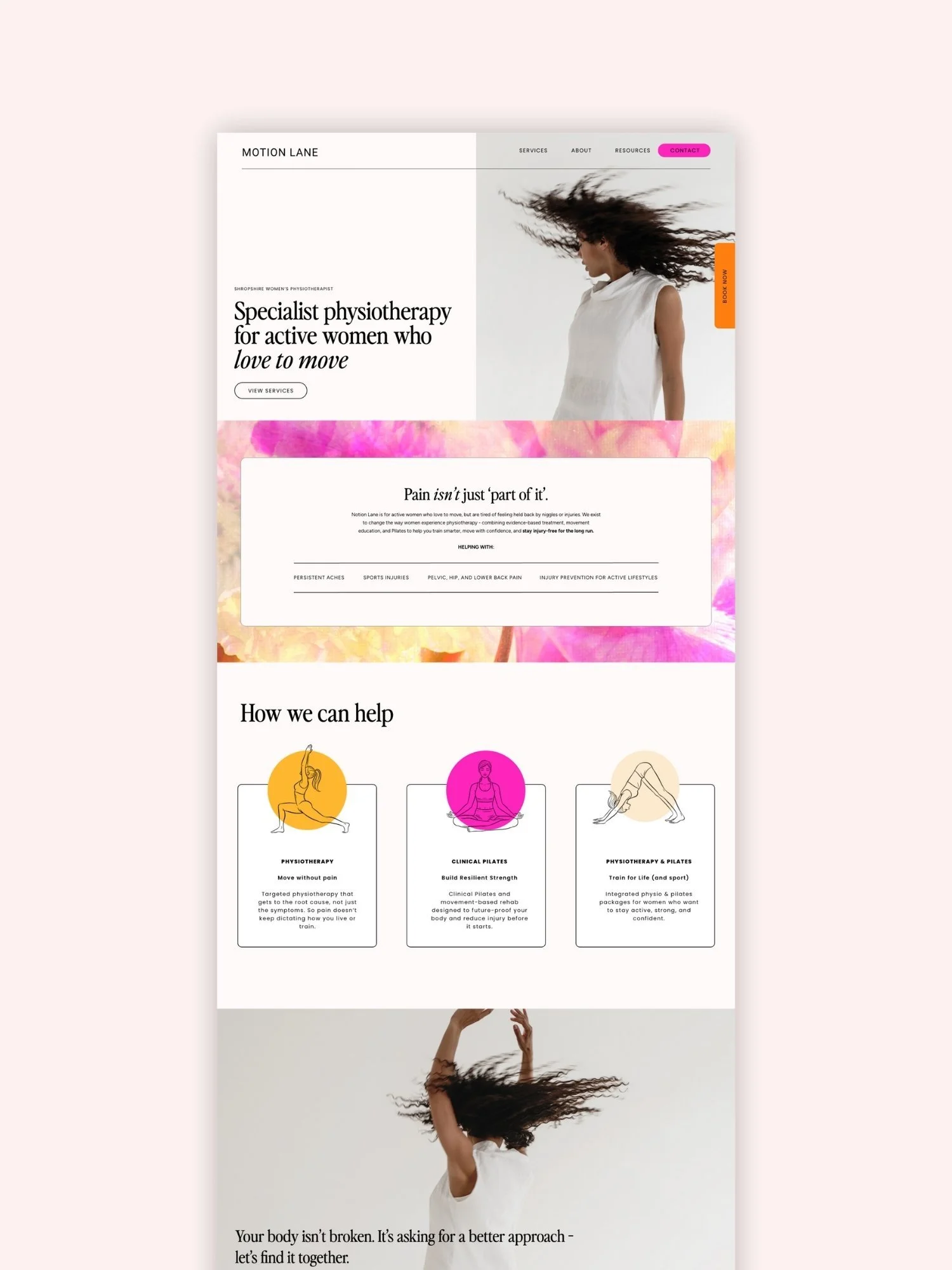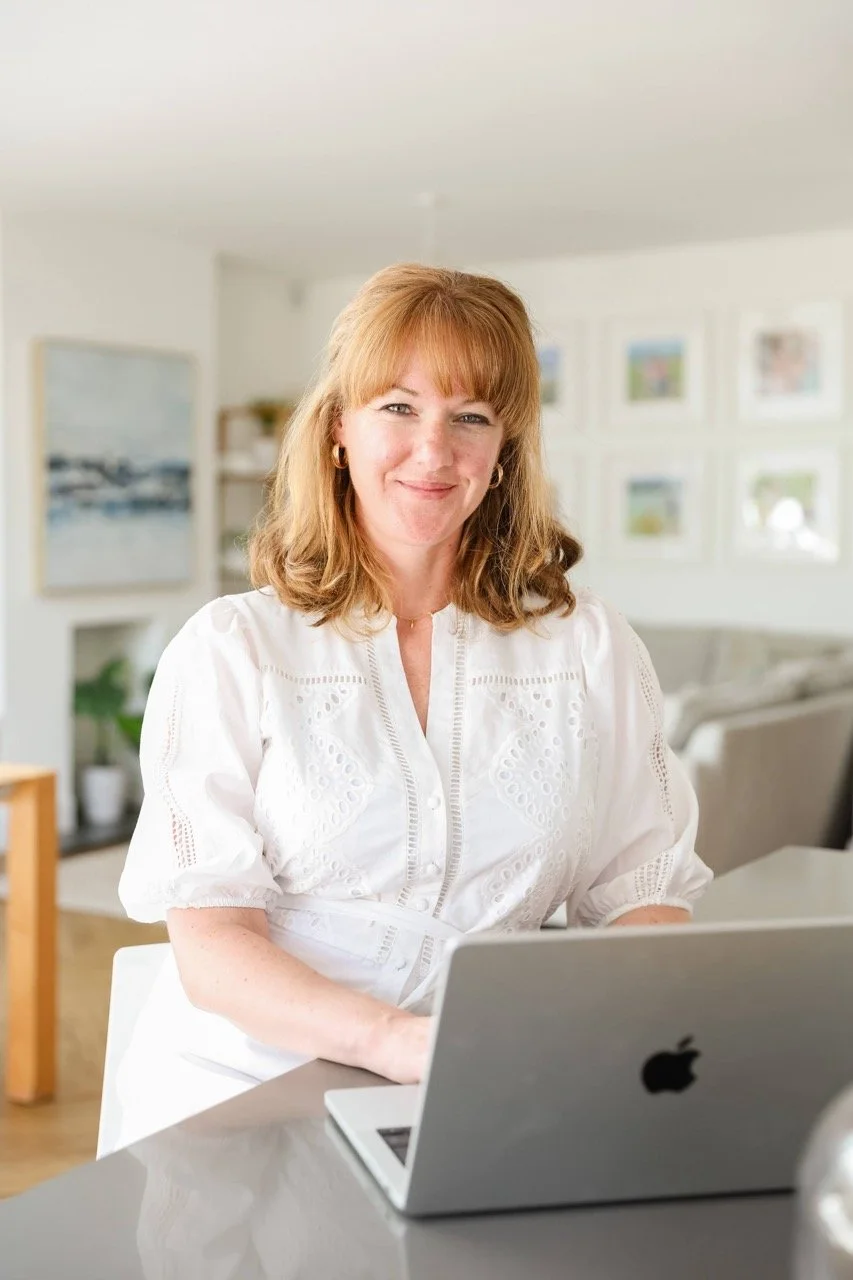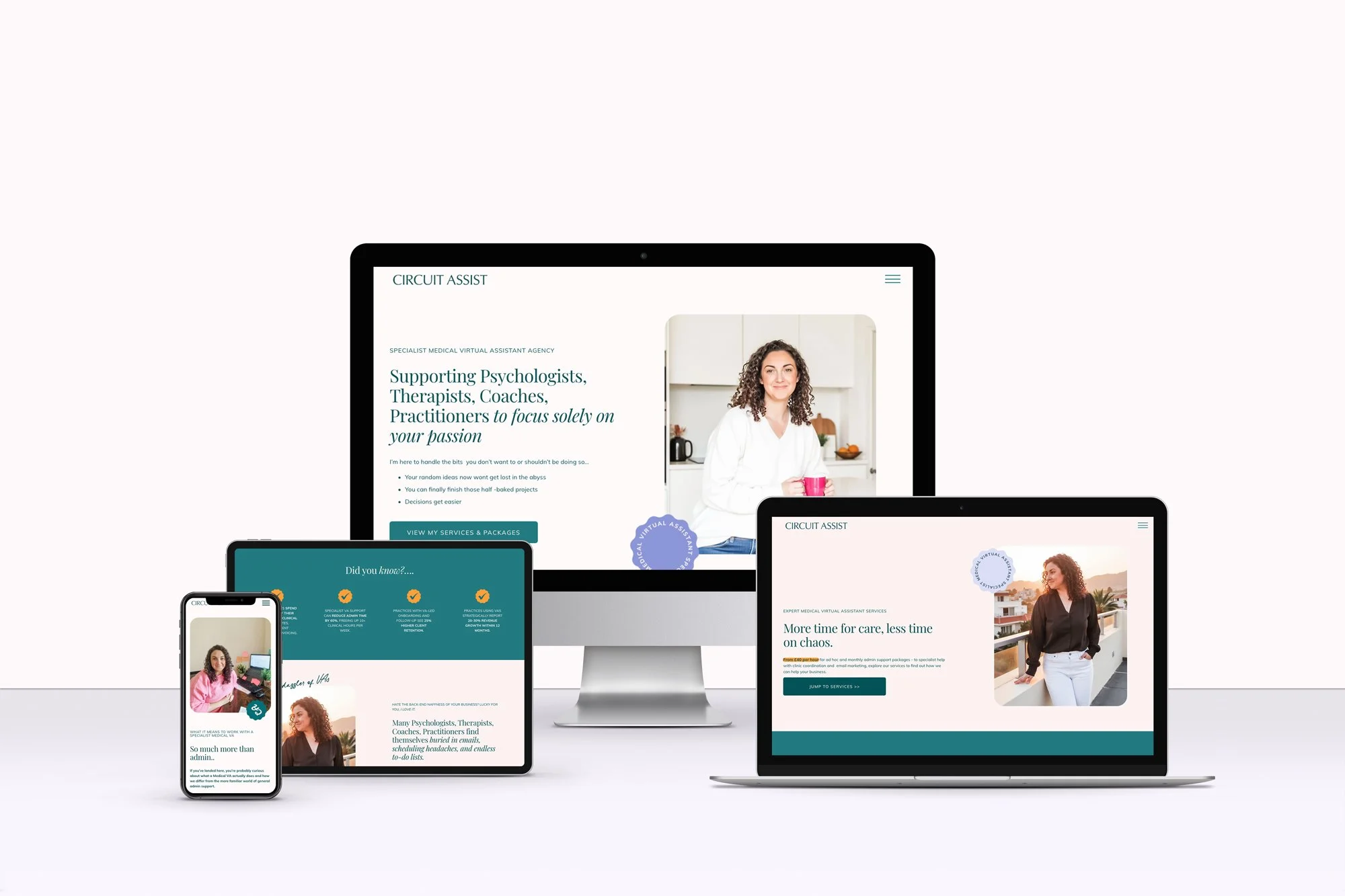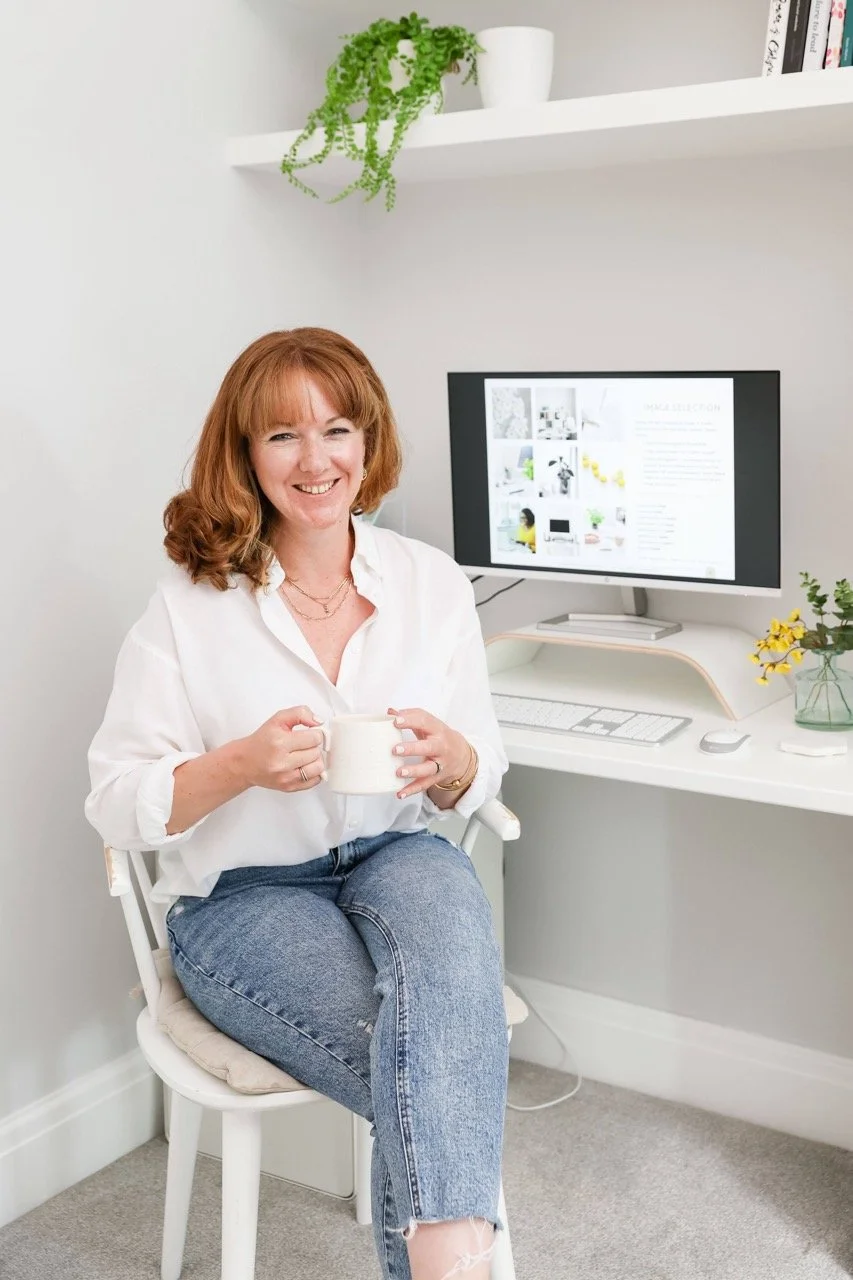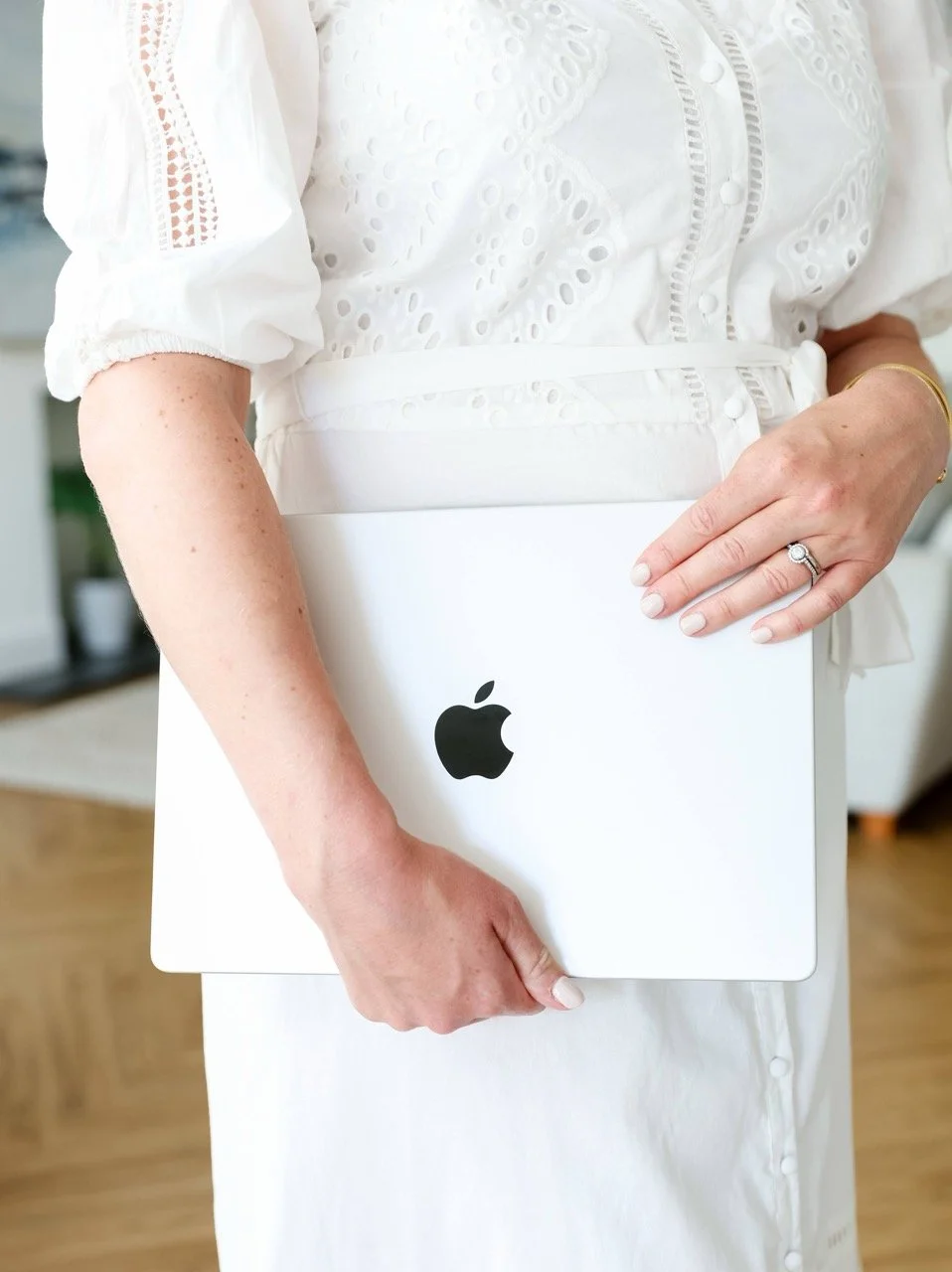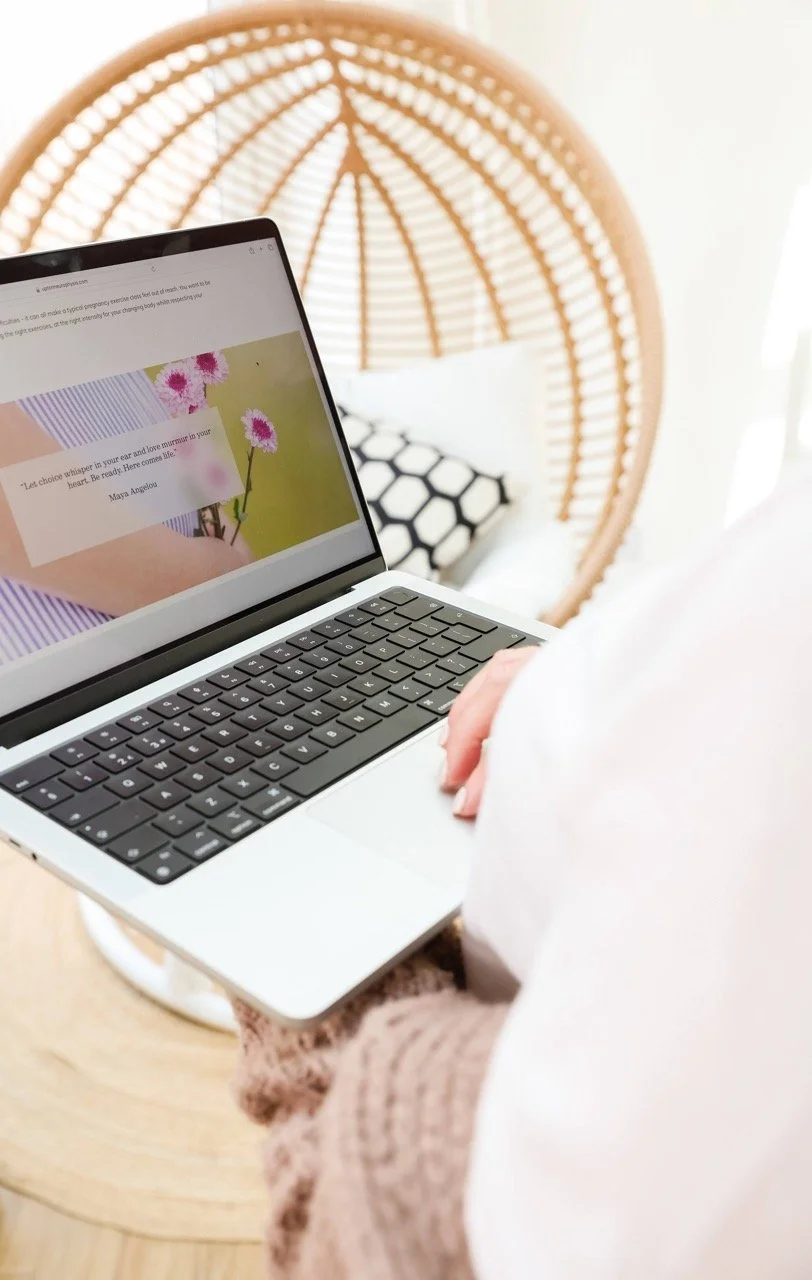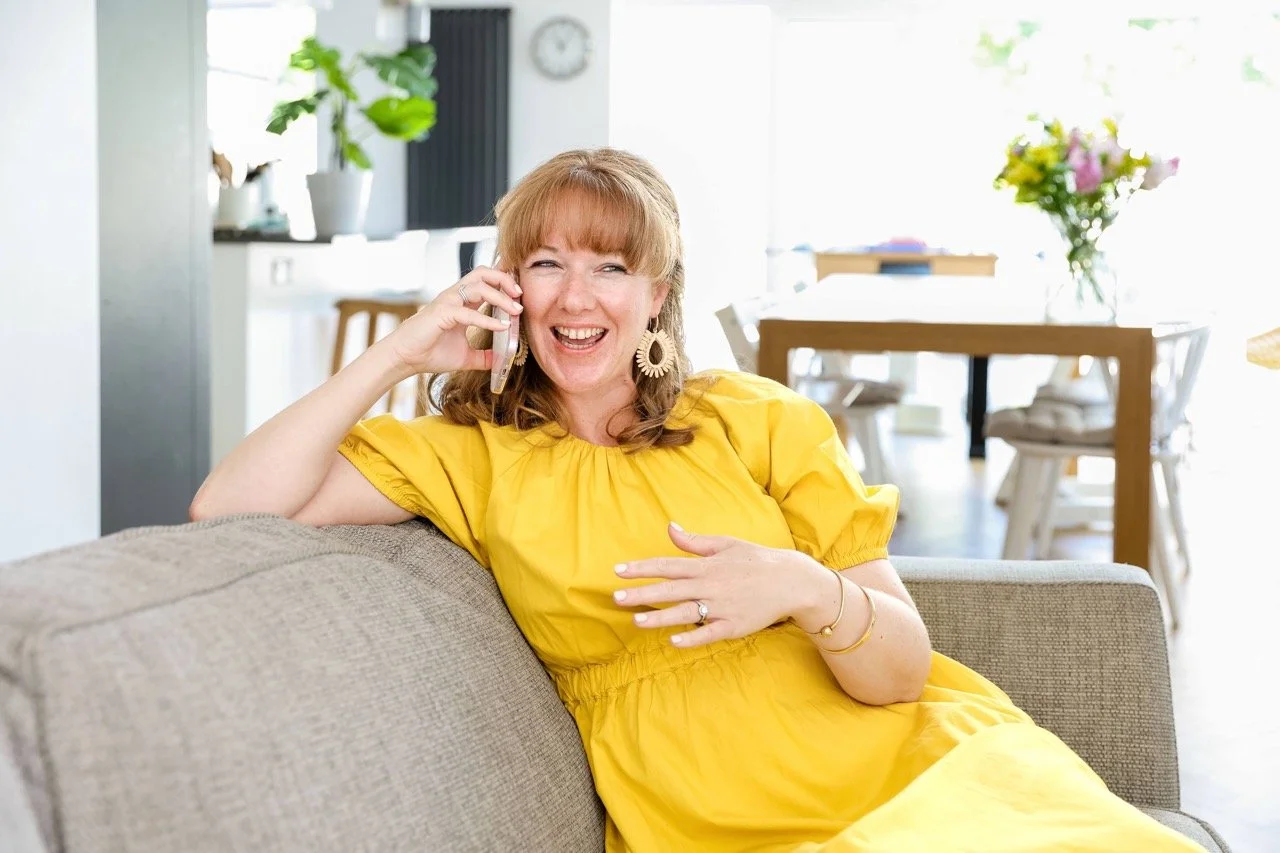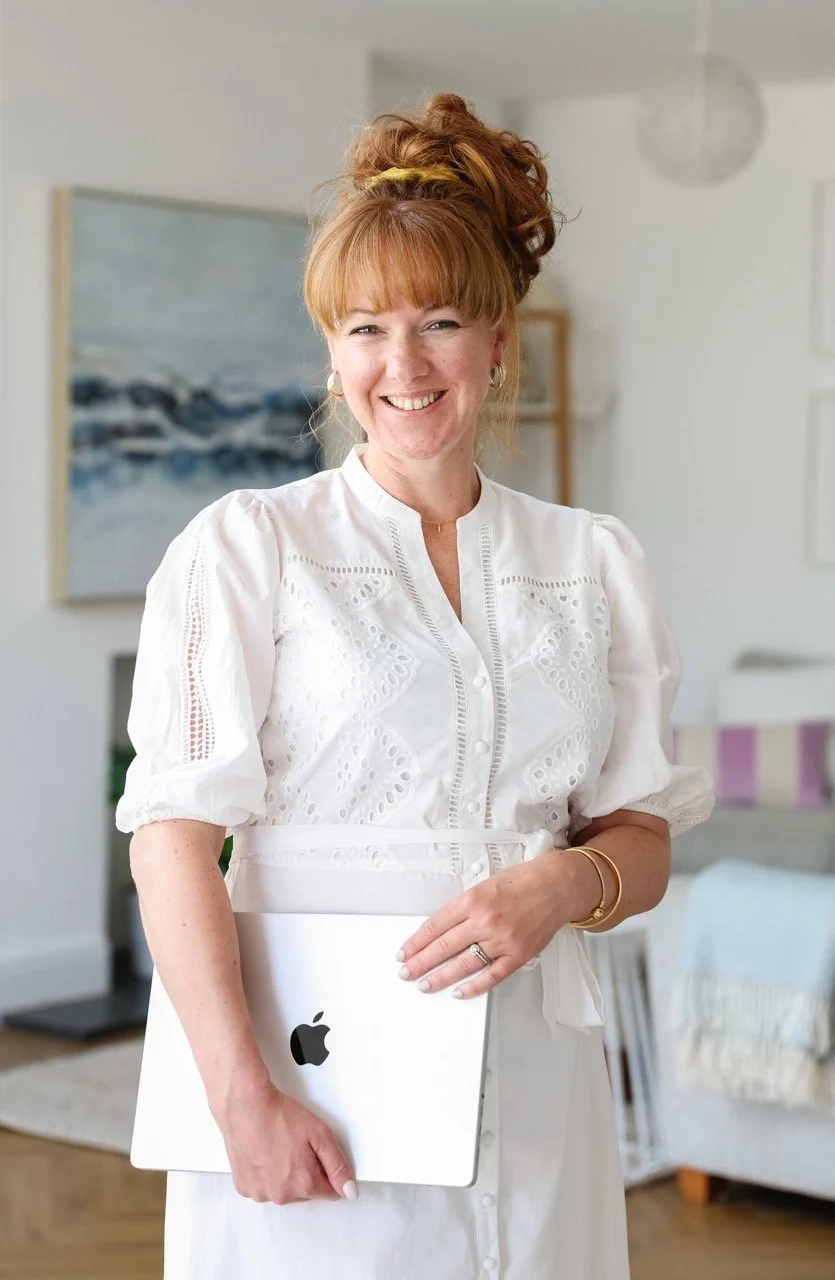Website vs. social media: Does my small business really need a website in 2026?
If you run a small business, chances are you’re already on Instagram, Facebook, or LinkedIn. Maybe even all three.
You post updates, share wins, and connect with clients. But there’s one question that keeps popping up in your mind (and Google searches):
“Does my small business really need a website, or is social media enough?”
It’s a question I hear all the time.
Because, after all, social media is free, fast…and packed full of potential clients. But in 2026, relying solely on social platforms doesn’t come without risks and missed opportunities.
So in this blog I’m exploring the pros and cons of websites vs. social media.
As a web designer, of course it’s safe to say I’m slightly biased!
But to be as fair as possible, I’ve compared both side by side, looking at key areas that matter for small businesses including control, visibility, trust, cost, and long-term growth - so you can make an informed decision about what’s right for your business.
(Slight spoiler: one side gives you more freedom, stability, and visibility than the other.)
Short on time? Jump to
Overview of each option
1. Websites for small businesses
A website acts as your digital office - and ultimately, it’s a space that’s entirely yours.
In fact, I believe this is one of the most exciting parts of creating your website - you have complete freedom to showcase your services, tell your story, collect leads, and build credibility - exactly as you want to.
You can design your website to create the exact experience you want clients to have.
And unlike social media, it’s not bound by the whims of algorithms or trends (which I find, frankly, quite baffling most of the time!).
Your website is the online equivalent of your shopfront - open 24/7, optimised for Google. And most importantly, always on message.
Key benefits:
It’s yours! So you have total control over the design and messaging
Searchable (and findable) in Google, ChatGPT and other search engines
Ability to collect leads and track analytics (helping you make more informed decisions)
Opportunities to build authority and trust
2. Social Media for small businesses
Social media’s two biggest strengths are:
It’s where people already are
It’s free (well, it can be free).
So you can build brand awareness, connect instantly, and show personality without any major upfront costs.
However, whilst this sounds great at first, what it means is that you’re effectively renting space on someone else’s platform. Algorithms change, reach fluctuates, and your content lifespan is often measured in hours, rather than months.
Key benefits:
Free to start
Great for engagement and community-building
Fast visibility and feedback
Limitations:
No ownership of data or audience
Visibility depends on algorithm changes
No control over design or SEO
Key features comparison
1. Control and ownership
Website: You own it (simple but so important!). Your content, design, and domain are completely yours. So you decide what to publish and craft how your online space looks and feels.
Social Media: You don’t own your space. Platforms can suspend accounts, change algorithms or limit your visibility overnight. (For this reason - as a small business owner, social media algorithms is always a hot topic at any networking or coworking event I attend.)
Verdict: Websites give you complete control and stability.
2. Visibility and discoverability
Website: Search engines like Google index your site, helping new clients find you organically. With good SEO, your site can rank for phrases like ‘virtual assistant in Cheshire’ or ‘nutrition coach website’.
Social Media: Your posts are seen mainly by followers - although Instagram has started displaying some account’s content to a wider audience. Discovery can be short-lived unless you pay for ads.
Verdict: Social media offers great visibility, but websites offer sustainable, long-term discoverability.
As a side note, despite finding a number of clients on Linkedin when I first set up Bright Avenue, I’ve more or less stopped using the platform now because currently it seems reach is highest with personal posts, whilst business-related posts don’t get seen by my audience. I’m actually quite a private person, so this doesn’t align with me at all!
3. Credibility and trust
Website: 84% of consumers say a business is more credible if it has a website. Having a professional website signals legitimacy and, in 2025, most clients expect it. What’s more, it shows clients you’ve invested in your business and can showcase a library of social proof such as testimonials, case studies and reviews.
Social Media: Social media is also key for credibility. It’s ideal for showing your personality and values. But on its own it isn’t enough - clients will still Google you - and expect a website to appear.
Verdict: Both websites and social media are necessary for building credibility and client trust for small businesses.
4. Marketing & conversion
Website: As a small business owner, your website is ideal for converting visitors into leads. You can use forms, lead magnets, booking systems, or newsletter signups - all tailored to your funnel.
Social Media: Brilliant for awareness and connecting with potential clients. The main drawback of social is that, at the end of the day, it’s designed to keep people scrolling - not clicking off to buy from you.
Verdict: Websites are stronger for lead generation and sales.
5. Analytics & insights
Website: With tools like Google Analytics and Squarespace Analytics, you can see exactly how visitors behave - which services they view, where they came from, and what converts best.
Social Media: Offers limited data, mainly engagement metrics (likes, shares, reach which don’t tell us very much). It’s very easy to waste time puzzling why one post receives more engagement than another.
Verdict: Websites analytics can give you actionable, data-driven insights.
Longevity & stability
Website: Once live, your website keeps working for you, even while you sleep. Added bonus - blog posts and SEO-optimised pages can bring traffic for years.
Social Media: Posts tend to vanish quickly in the feed - a LinkedIn post's active lifespan is typically 24 to 72 hours, and an Instagram post approximately 48 hours. So staying visible requires daily activity.
Verdict: A website is an investment that compounds over time and needs less daily activity.
Pricing Comparison
Many small business owners assume websites are expensive, but costs vary widely depending on your goals and platform.
Bright Avenue website cost ranges (UK-based web designer) - true as January 2026, please check Squarespace Pricing for up-to-date information:
| Type of Website | What’s Included | Estimated Cost |
|---|---|---|
| The Glow-up | Focused re-design of an existing website | £750 for development (then ongoing £12–25 approx Squarespace fee) |
| The Illuminate Semi-Custom | Multi-page template site with SEO setup and integrations | £1,100 (then ongoing £12–25 approx Squarespace fee) |
| The Radiate Fully-Custom | Custom design with SEO setup and integrations | £1,850+ (then ongoing £12–25 approx Squarespace fee) |
Social Media:
Free to start, but organic reach has declined sharply. A large number of businesses now spend on ads or scheduling tools (£20–£200+/month). This cost is increasing with the price of Facebook ad jumping 21% in 2025.
Verdict: Social media looks cheaper (or free!) at first, but a website potentially pays off longer by attracting organic leads without ongoing ad spend.
Conclusion
When it comes to website vs social media, I think it’s clear that it’s really not an either/or situation.
Social media is, without argument, brilliant for connection, visibility and storytelling. But it can be hit and miss. A single algorithm tweak can alter your reach overnight.
A website, on the other hand, gives you:
A permanent home for your brand
Organic visibility via Google and AI searches
Complete design and messaging control, leading to more conversion power
So the best strategy for small businesses is to use both.
Utilise social media to attract potential clients and your website to convert. And together, they create a strong digital presence that builds trust and generates consistent sales.
Are you ready for a new website that works hard for your business? Explore my web design packages to find the perfect fit for your business - whether you need a simple refresh or a complete online transformation.
FAQs
Why is social media alone not enough for small businesses?
Social media is great for building awareness but unreliable for long-term growth. You don’t own the platform, so your reach can reduce dramatically when algorithms or policies change. A website gives you a stable base you fully control.
It’s also what people expect with 97% of B2B buyers check a vendor’s website before reaching out.
Can I run a business without a website?
Yes you can - but you’ll face limitations. Without a website, your business won’t appear in search results, may seem less credible, and could miss out on clients who prefer browsing services online before enquiring
What are the three keys to a successful website?
Clear messaging: communicating who you help and how.
Strong design & user experience: making it easy for visitors to navigate and work well across all devices.
Calls to action: guide visitors toward booking, buying or enquiring.
How much does a small business website cost?
At Bright Avenue, website re-design cost £750, while multi-page websites with SEO and integrations start at £1,100. Premium sites with custom features can go beyond £1,800 depending on functionality and design complexity.
Do I still need social media if I have a website?
Absolutely, think of your website as your HQ and social media as your network of outposts that drive traffic back to it. Both work best together, but your website should always be your foundation.
How can I get started?
The best place to start is by deciding what you want your website to achieve - for example, credibility, lead generation, or online booking. Then explore my web design packages to find a tailored solution that fits your business goals.


